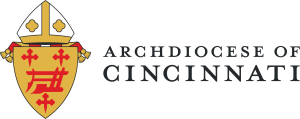The game of baseball is a great analogy for an evangelizing parish. We love the analogy so much that we built our evangelization process around the analogy.
One analogy that we can make between baseball and an evangelizing parish has to do with the critical role of the leader.
In the game of baseball, the head coach makes or breaks the team: In baseball you can have all of the talent in the world, but if you do not have a head coach that can direct that talent, your team will suffer. A good head coach has the big picture in mind and works to form a cohesive team that plays together.
In the same way, leadership makes or breaks an evangelizing parish. An evangelizing parish might have the best programs, it might have abundant resources, it might even the best employees, but if it suffers from lack of leadership it will be very difficult to become an evangelizing parish.
The Cincinnati Reds understand this reality. In order to find that edge that could make them a winning team, they are focusing first on leadership, specifically on building a healthy organization using the book The 5 Dysfunctions of a Team by Pat Lencioni. According to the Reds, this is changing their culture from the inside out.
The 5 dysfunctions of a team are:
Absence of Trust
Fear of Conflict
Lack of Commitment
Avoidance of Accountability
Inattention to results.
Not surprisingly, these 5 dysfunctions make or break a healthy parish leadership team as well. Pat Lencioni is not only an internationally sought after business consultant, he is also a faithful Catholic who is really applying his faith to the business world. In the same way, he is giving back to the Church through his leadership development apostolate, the Amazing Parish.
In our experience, a healthy leadership team at a parish is the key that unlocks the potential of an evangelizing parish. Absent healthy leadership, we have seen evangelizing efforts take off but inevitably they will plateau at best and fizzle completely out at the worst.
It turns out that Cincinnati will be doubly blessed by Pat Lencioni’s leadership advice. While the Cincinnati Reds hope the principles of a healthy organization will translate to wins on the baseball field at Great American Ballpark, a few blocks down at the Duke Convention Center, parishes from across the Archdiocese of Cincinnati will join parishes from across the country for the Amazing Parish Conference right here in Cincinnati this May 13-15, 2019.
I will be there with my Evangelization Leadership Team as we are beginning to implement Amazing Parish principals on the diocesan level. If you are looking for the next step to help your parish become an evangelizing parish, this is the first place I would start.

